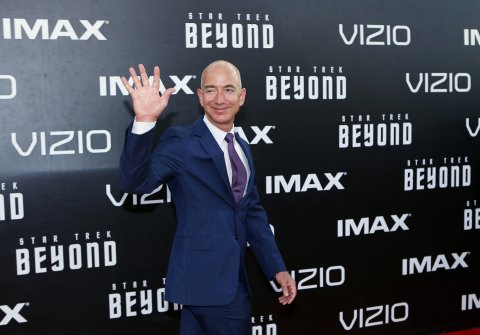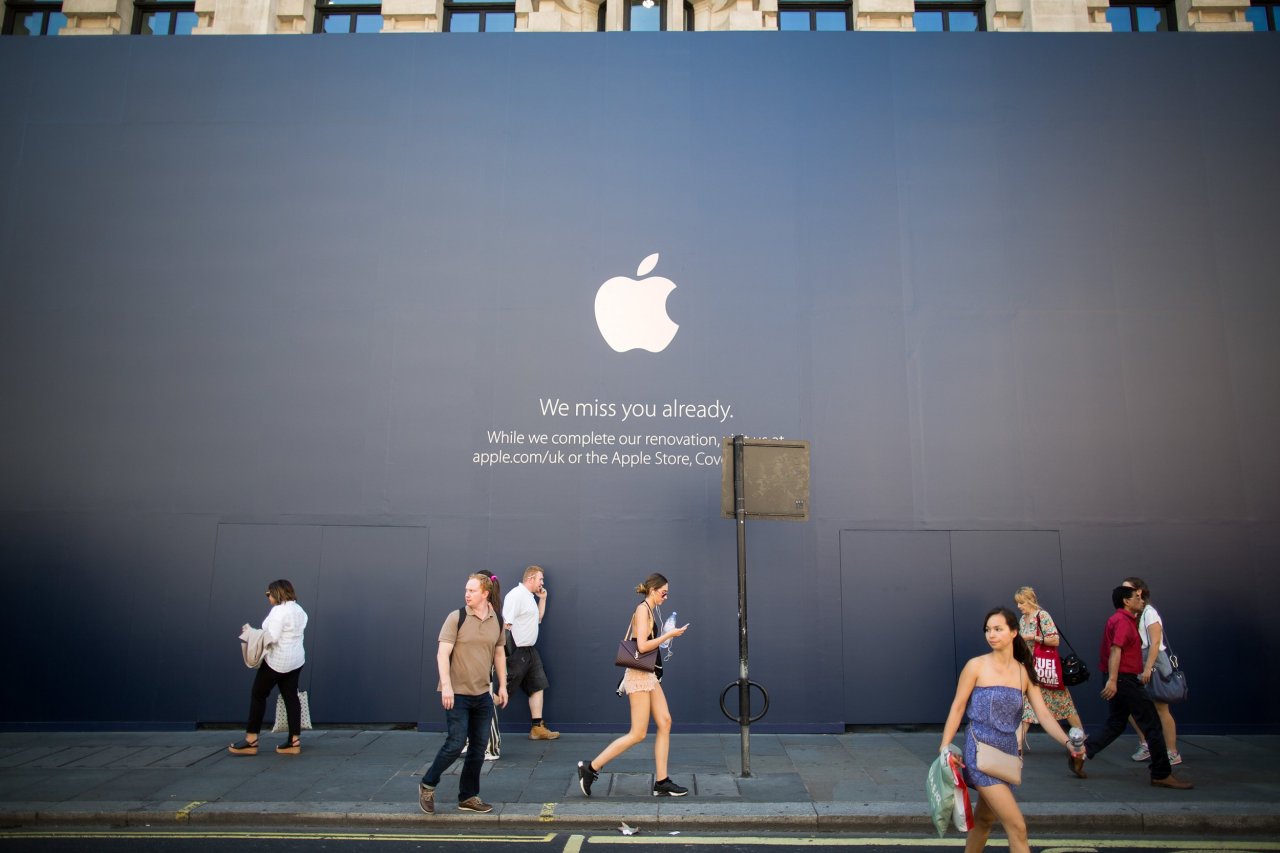If you traveled back 10 years and told people what was going to happen to three of digital technology's most famous companies—Yahoo, Apple and Amazon—they'd think you were bonkers. They reshuffled their relative positions of power at least once since 2006 and now seem about to do it again. How this turns out will say a great deal about where technology is heading.
Yahoo, after years of trying to recapture former glory, is getting bought by Verizon for $5 billion, an amount that will no doubt soon seem generous. Apple, everybody's darling for the past decade, looks stalled, reporting declining profits and iPhone sales. Amazon—a company the same age as Yahoo—has meanwhile ginned up a surprising second life because of its Amazon Web Services (AWS) cloud computing juggernaut and even seems poised to build a third great business around its Alexa artificial intelligence system. Amazon just reported quarterly numbers that were all rainbows and ponies.
Creating New Categories
Yahoo is our past, though it may foreshadow Apple's future. Technology is almost always a winner-take-most industry. As my co-authors and I detailed in our book, Play Bigger: How Pirates, Dreamers and Innovators Create and Dominate Markets, the great tech companies define and develop a new category of business that never existed before, and those companies tend to devour the vast majority of the money and attention in that market, often for years or even decades. In the 1990s, Yahoo did this. It defined, developed and dominated the previously unheard-of category of "web portal." And at that category's peak in the late 1990s, Yahoo was worth $128 billion—more than 25 times what it just sold for.
Remember when web portals were hot? That was when we needed a way into the burgeoning and often confusing web—a single screen that guided us to news and services and email and whatever else was popping up that might interest us. As usually happens, lots of others tried to barge into the business, like Excite and AOL. But Yahoo reigned supreme.
And then, in the early 2000s, Google showed up. Google made search our entry point for the web. We didn't need a guide—Google took us exactly where we wanted to go. The web as a curiosity was over, and it became a tool. Yahoo's category-defining invention, the portal, got demoted like an aging shortstop, replaced by a rookie category of search as defined by Google. Yahoo remained king of a declining category, which meant Yahoo itself declined. By then, it owned lots of operations such as news, chat and email that were me-too offerings, not category-dominating businesses. Me-toos can be decent businesses, but they're not businesses that make investors swoon and get CEOs invited to the World Economic Forum in Davos.
This is why Marissa Mayer has never had much of a chance. She was brought in as Yahoo's CEO in 2012 to return it to its era of conquest. When she arrived, employees put up "Hope" posters that echoed the Barack Obama presidential campaign posters from 2008. She even said she would "bring an iconic company back to greatness." But to do that, she would've had to invent and then dominate a new category as significant as web portals were in the '90s. And that was an almost impossible task. A fraction of 1 percent of the thousands of venture-backed startups ever create an important category. Giant incumbent companies almost never do—unless they have a rare and extraordinary leader.
Which brings us to Apple. When Steve Jobs returned to that company in 1997, it was like the sputtering version of Yahoo, living on an outmoded past and constantly failing to reinvent itself. Apple was nearly sold to Sun Microsystems. And then Jobs did the miraculous. He created one major new category after another: first the iPod-iTunes business in 2001, then the iPhone in 2007 and iPad in 2010. Apple under Jobs defined these categories and dominated them, taking most of the profits and market share. Today, while high-powered mobile devices are consumers' digital drug of choice, investors have made Apple the most valuable company on Earth.
This is why Tim Cook is probably in for the kind of rough treatment Mayer has endured. While we unquestionably love our smartphones and tablets, and while tens of millions of people will buy them this year, the best days of those categories will soon slide by. The chances of Apple again inventing and dominating significant new categories of business are, to be blunt, near nothin'. If we expect Cook to pull that rabbit out of his wherever, as Donald Trump might say, we'll be disappointed. It is more realistic to expect Cook's Apple to milk every bit of profit out of these solid but aging categories and keep things interesting with some new stuff around the edges, like the Apple Watch. That's essentially saying Apple could become a tech Procter & Gamble or General Motors. But it might never again be Steve Jobs's Apple.
Cloud Computing the Future?
And that leads us to Amazon. Over the past 20 years, it defined and dominated the category of online retail. If it had never created another monster category, we might be talking about Amazon the way we are now talking about Yahoo or Apple. But the Jeff Bezos–led Amazon seems to have that rare category-creation gene. Over the past decade, it built the explosive cloud computing services category, and AWS is crushing it. Over the past year, AWS revenue was four times greater than that of second-place Microsoft, growing 72 percent year-over-year. In Amazon's last quarter, AWS accounted for 40 percent of the company's overall profits. That's the power of category creation.
AWS says a lot about where we're all going. We moved past Yahoo's era of PCs and the web, and now we're moving through the era of smartphones and apps. In tech's next generation, almost every function or service and all of our digital stuff will be in the cloud, accessible through an ever-expanding array of less smart, more focused devices, whether that's a smart watch or connected car or networked toilet. We won't have to carry a Swiss-army-knife high-performance phone in our pockets or purses—the power will be in the air and devices around us. And it will run on AWS and its me-too competitors.

Today, amazingly, Amazon seems to be creating yet another category with its Echo devices and Alexa software. Something like this will be the successor to the smartphone—the front-end technology that will let us talk to a watch or car or loo and make sure the device will understand who we each are, what we want, and how to get it done. It's a little early to declare Amazon the ultimate monarch of this new category of consumer AI, but it's in the lead. And if Amazon can become the king of the front end and king of the back end—well, that spooks Google, Facebook, Microsoft and every other tech giant, and they're all investing like crazy to make sure they don't lose this round to Amazon. Other tech giants know there's a chance Amazon could outmaneuver their categories, and leave them like Yahoo, fending off shrinkage.
Anyway, if you do figure out how to travel back a decade, don't bother explaining all this to anyone. Just short Yahoo and invest in Apple and Amazon for me, so I can lounge on a boat all day and not have to write these damn columns.



















